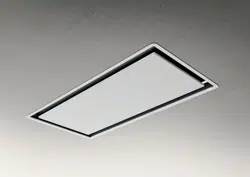Loading ...
Loading ...
Loading ...

4
Electrical requirements
IMPORTANT
Observe all local codes and ordinances.
It is the customer’s responsibility:
To contact a qualified electrical installer.
To assure that the electrical installation is adequate and in
conformance with National Electrical Code, ANSI/NFPA 70 —
latest edition*, or CSA Standards C22.1-94, Canadian Electrical
Code, Part 1 and C22.2 No.0-M91 - latest edition** and all local
codes and ordinances.
If codes permit and a separate ground wire is used, it is
recommended that a qualified electrician determine that the
ground path is adequate.
GROUNDING INSTRUCTIONS
This appliance must be grounded. In the event of an electrical
short circuit, grounding reduces the risk of electric shock by
providing an escape wire for the electric current.
WARNING – Improper grounding can result in a risck of electric
shock.
Consult a qualified electrician if the grounding instructions are not
completely understood, or if doubt exists as to whether the
appliance is properly grounded.
Do not ground to a gas pipe.
Check with a qualified electrician if you are not sure range hood is
properly grounded.
Do not have a fuse in the neutral or ground circuit.
IMPORTANT
Save Installation Instructions for electrical inspector’s use.
The range hood should be connected directly to the fused
disconnect (Or circuit breaker).
Wire sizes must conform to the requirements of the National
Electrical Code ANSI/NFPA 70 — latest edition*, or CSA
Standards C22.1-94, Canadian Electrical Code Part 1 and C22.2
No. 0-M91 - latest edition** and all local codes and ordinances.
Copies of the standards listed may be obtained from:
* National Fire Protection Association Batterymarch Park Quincy,
Massachusetts 02269
** CSA International 8501 East Pleasant Valley Road Cleveland,
Ohio 44131-5575
Before installing the hood
1. For the most efficient air flow exhaust, use a straight run or as
few elbows as possible.
CAUTION: Vent unit to outside of building, only.
2. At least two people are necessary for installation. Wear
gloves to protect against sharp edges.
3. Fittings material is provided to secure the hood to most types
of walls/ceilings, consult a Qualified Installer, check if they
perfectly fit with your cabinet/wall.
4. COLD WEATHER installations should have an additional
backdraft damper installed to minimize backward cold air flow
and a nonmetallic thermal break to minimize conduction of
outside temperatures as part of the ductwork. The damper
should be on the cold air side of the thermal break.
The break should be as close as possible to where the
ducting enters the heated portion of the house.
5. Make up air: Local building codes may require the use of
Make-Up Air Systems when using Ducted Ventilation
Systems greater than specified CFM of air movement.
The specified CFM varies from locale to locale. Consult your
HVAC professional for specific requirements in your area.
Do not install insulation within 76 mm (3 in) of
any part of the rangehood.
Check of the ceiling
The ceiling must be flat, horizontal, sturdy enough, and resistant
Warnings
The hood is designed to be installed in a dropped ceiling
The dropped ceiling must be sturdy and have a load-bearing
capacity suitable for a product with max. weight of 28 Kg (model
with steel panel) or 30 Kg (model with glass panel).
Do not install the hood directly in the dropped ceiling panels, but
use a suitable frame or support.
Loading ...
Loading ...
Loading ...
